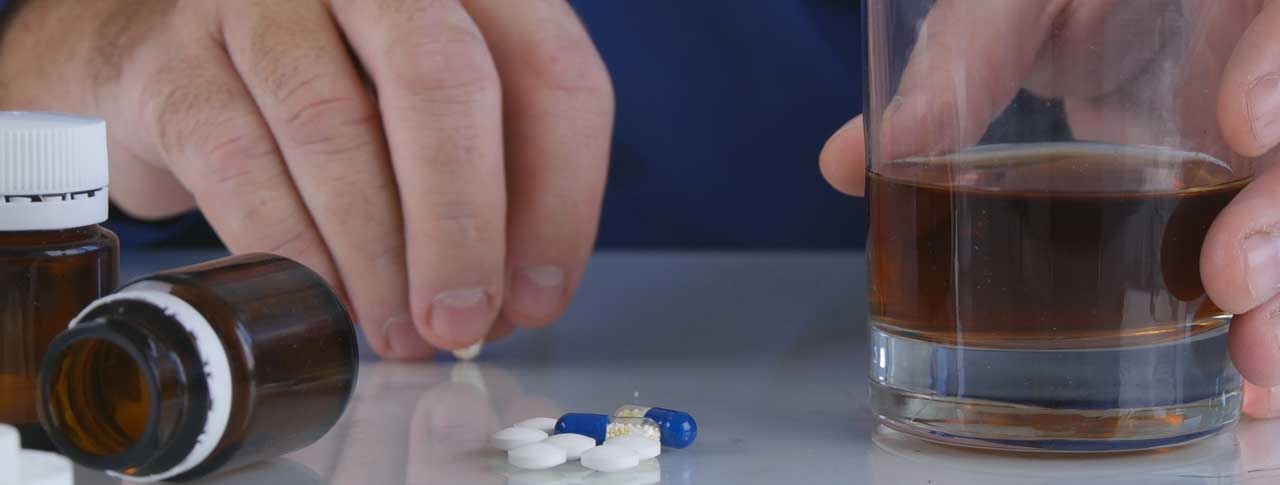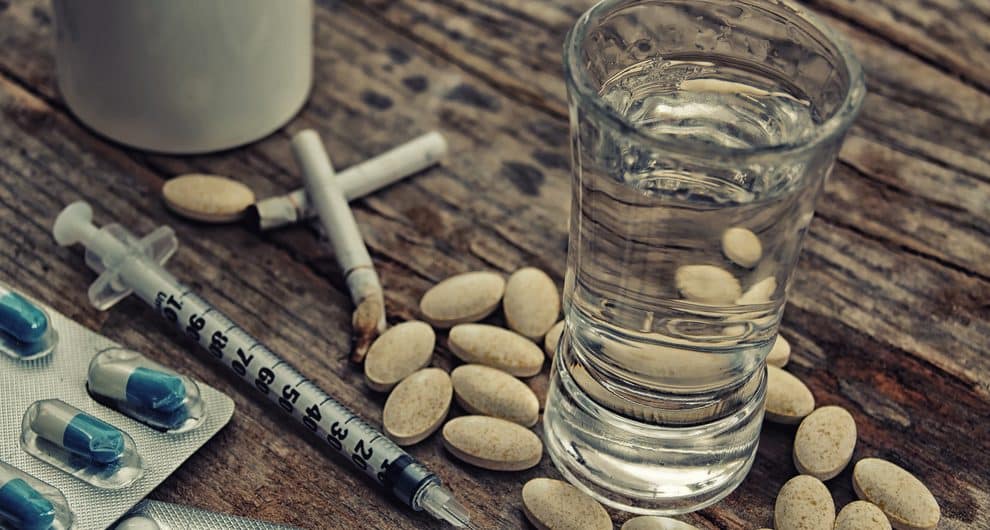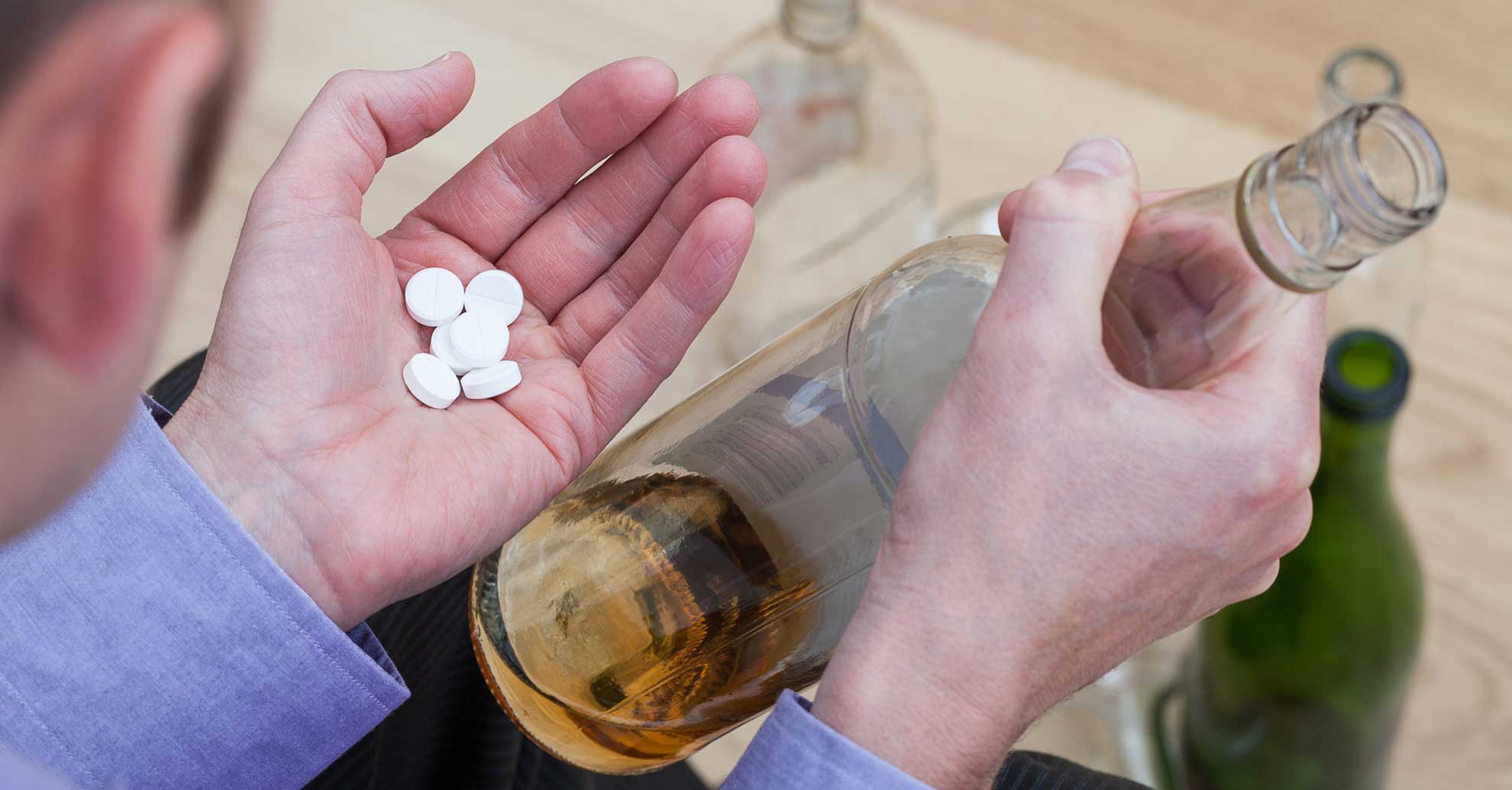
Using drugs together to get a more powerful feeling has been around for quite some time. Unfortunately, it’s also one of the reasons why there are so many drug overdoses. Mixing some drugs together can prove fatal. Because of its social accessibility, many people don’t consider alcohol a dangerous substance. Often, people find themselves consuming alcohol as though it isn’t poison in its own right. When a person drinks alcohol, their liver needs to start converting it into something harmless right away. With those who suffer from alcohol use disorder, liver damage is quite common. Cirrhosis of the liver happens to chronic alcohol consumers over time, sometimes leading to death.
Vicodin itself is a mixed drug. It contains both hydrocodone and acetaminophen. Many people who take Vicodin do so as prescribed after a surgical procedure as a painkiller. It’s a painkiller that’s only prescribed for managing severe pain. Unfortunately, as with most painkillers designed to deal with severe pain, Vicodin is exceptionally addictive. A person who consumes Vicodin might develop a substance use disorder where they need it to function. Even so, some people use Vicodin as a recreational drug. Since the prescription drug epidemic, many users have begun experimenting with other painkillers to see if they can reproduce the effects of painkillers, they no longer have access to. Consuming Vicodin alongside alcohol seems to be one of the more popular ways for people to get high.
Vicodin And Alcohol Explained
Alcohol is a depressant – it slows down the body’s nervous and cognitive systems. Vicodin is also a suppressant, doubling up the effect that alcohol has on a person’s body. When consumed together, the body is hit with a double blow to its respiratory system. Independently, overdosing on Vicodin can lead to respiratory arrest or failure. Even alcohol poisoning can lead to a similar situation in a person. However, when mixing both of these drugs, the feelings that each creates intensify. The risks to a person’s respiratory system also increase massively and might end in death. Each time a person takes both of these drugs together, the chances of a fatal outcome increase.
Acetaminophen, one of the drugs in Vicodin, is a potent painkiller in its own right. It’s been used to manage fevers from illnesses successfully and can even be bought as an OTC drug. It has a long history of being a trusted “go-to” medicine for various ailments. Unfortunately, another side-effect of over-consumption of acetaminophen is liver damage. Most people who have read about alcohol use disorder know that this substance also affects the liver negatively. When someone takes Vicodin alongside alcohol, it hits the liver twice. If someone mixes this combination of drugs once in a while, it’s not likely to cause severe liver damage. However, the more someone does it, the more they’re inclined to do it again. Regular use of this combination can cause severe and irreparable liver damage.
Interactions Between Opiates and Alcohol
Hydrocodone is an opiate – a synthetic drug derived from mimicking the action of opium on the body. It’s a potent painkiller in its own right but also carries a significant risk of addiction. When someone takes hydrocodone, their body responds with a euphoric rush, which is somewhat similar to the feeling of getting drunk off alcohol. However, the impact on a person’s body can lead to severe side effects. Some of the typical side-effects of a person mixing opiates and alcohol include:
- Dehydration
- Arrhythmia
- Blood pressure changes
- Disinhibition
- Loss of coordination
- Nausea/Vomiting
- Abnormal behavior
- Respiratory failure
- Cardiovascular instability
- Coma
Both of these drugs are deadly and can cause death from overdoses on their own. However, because of the reduced inhibitions and more favorable approach to risky behavior, an overdose becomes more likely the more a person uses both drugs. The enhanced euphoric effect of consuming both drugs at the same time is a powerful motivator. Many people seek out that feeling, causing them to double up on these drugs many times over.
Side Effects of Combining Substances
Vicodin and alcohol can be a dangerous combination because of how open and willing a person might be to continue using the cocktail of drugs. Vicodin suppresses the central nervous system (CNS), making it more difficult for pain signals to get through. The CNS is also responsible for reflexes, so it’s common to have slowed reaction time when taking Vicodin. Alcohol also preys on the CNS, in addition to the brain. Painkillers like Vicodin impact the respiratory system significantly, causing the body to get less oxygen. If someone takes Vicodin and goes to bed, they might wake up still feeling tired. Observers might inform them that they were snoring while they slept. Vicodin is a depressant that works to slow down the central nervous system, similar to alcohol.
Taking both of these together creates a terrifying prospect. If a person’s respiratory system gets reduced enough, it can lead to the person dropping into a coma because there isn’t enough oxygen to sustain the body’s natural processes. Individuals taking the combination of these drugs often experience shortness of breath, tightening of the chest area, or even have a stuffy nose. When a person overdoses on alcohol and Vicodin, it can quickly devolve into a respiratory failure event.
Potential For Overdose with Depressants
Overdosing with depressants can happen before a person even realizes they’re past their limit. If someone mixes these drugs occasionally, the chances of anything happening are still relatively high, but not as high as someone who does it regularly. With each mixture, a person sends up their chances of dying from an overdose or ending up in a coma. Depressants affect a person’s breathing significantly, and alcohol lowers inhibitions drastically. Both of these, in combination, create the perfect variety of events to lead to an overdose. However, spotting an overdose of Vicodin and alcohol might be complicated. Persons suffering from an overdose of Vicodin and alcohol may have one or more of the following symptoms:
- Stupor
- Uncontrolled eye movements
- Impaired judgment
- Difficulty in concentrating
- Trouble remembering things
- Slurred speech
The liver is the most affected by regular consumption of alcohol and Vicodin. The liver’s job in the body is to neutralize poisons and remove toxins from a person’s bloodstream. As much as it’s a socially acceptable drug, alcohol is still a poison to the body. The liver works overtime to neutralize this poison, filter out the toxins, and get them out of the body. It also tries to do the same with acetaminophen in the Vicodin. Unfortunately, this might be too much for the liver to process, and it may just shut down in response to this added pressure. Respiratory failure is also common in overdose cases, where a person might have slowed or shallow breathing or simply stopped breathing altogether. Individuals might suffer a stroke on rare occasions because of the increased blood pressure from taking these drugs. The lack of oxygen may also drive a person into a coma, with no guarantee that they’ll ever be able to wake up.
Liver Damage from Vicodin And Alcohol
As mentioned before, the liver is the central processing point to remove dangerous substances from the body. Acetaminophen is readily available as painkillers that can be purchased over the counter from most pharmacies. On each of these cartons is a warning that regular consumption of the drug above the recommended dosage could lead to liver damage. However, the liver can only keep up with so much acetaminophen in the blood. If a person starts taking Vicodin, they also introduce hydrocodone into their bloodstream, doubling the liver’s work to neutralize these substances and extract the toxins from the bloodstream.
Alcohol has its own reputation for liver damage. When a person mixes alcohol with their Vicodin, they triple the amount of work the liver has to do. Each time a person consumes alcohol and takes Vicodin, the damage to the liver continues unabated. However, with each successive time they do so, the liver becomes less functional. Damage to the liver done from this mixture of drugs can lead to organ failure. Taxing the liver to such an extent that it can no longer perform its function can also lead to massive organ failure and, in some instances, hospitalization. This type of liver damage is referred to as acute liver damage. While some might think this is a long-term process, acute liver damage can occur within a few hours. For people who suffer from acetaminophen damage to their liver, recovery is possible. However, if the liver is already damaged (such as if a person is a chronic alcohol user), the damage can be permanent. Acetaminophen toxicity from Vicodin can lead to lasting effects on a person’s liver.
Seeking Treatment for Painkillers And Alcohol
When a person takes either Vicodin or alcohol, it creates a euphoric event in their brain. This feeling of euphoria is what promotes addiction because people chase the feeling, sometimes overdosing on the drug. When a person takes a substance, the brain starts changing its physical form to cope with the effects of the drug. The result is that the brain rewires itself to need the substance. This condition is termed dependence. Dependence devolves into addiction when a person can no longer make rational decisions about the substance. Addiction is a brain disease that skews a person’s cognitive ability, making them take risks to access the substance they crave.
Painkillers and alcohol can be addictive but overcoming this addiction starts with accepting that there’s a problem. Deciding to go to a rehab or treatment center like Circle of Hope offers a way out of substance use disorder. In rehab, the first step is detoxification. This process is a controlled withdrawal from the substance, under the watchful eye of medical staff trained to respond to issues as they arise. Inpatient and outpatient treatment is available after detox. Here, patients learn to deal with the psychological urges behind their addiction. Inpatient or outpatient treatment may last anywhere between thirty and ninety days. While it might be comforting to think that a person is fully recovered at this point, that’s not the case. Many people have to deal with long-term urges to use a substance. Ensuring a person can leave the habit behind requires the proper aftercare and peer support.
Aftercare And Relapse Prevention in Recovery
Aftercare is a term used to describe the period after a person leaves inpatient or outpatient treatment. While the facility might teach a person how to avoid the thoughts that might trigger their consumption of the substance, it can’t actively hold a person accountable. For many individuals struggling to overcome addiction, there’s always a risk of relapse. Sometimes emotional trauma might drive a person back into drug use. How can a person seek to prevent this sort of relapse that undoes all the work they put into recovery?
One of the most accessible ways is joining a peer support group. The recovery community in California is large, and many groups accept new members actively. Twelve-step programs are one of the best-known types of groups, but they aren’t the only ones. Finding out about peer-support groups can give a person the accountability they need to remain sober over the long term. It also helps them see success stories about people who have broken the habit and regained control over their lives.
Finding A Recovery Center for You
Each recovery story depends on the individual. You cannot truly force someone to go to rehab, at some level they must want to do so themselves. However, it helps if the rehab facility has a warm, welcoming staff and trained professionals to help guide you to recovery. At Circle of Hope, that is what we try to provide to our patients. With professionally trained therapists alongside medical professionals to help with detoxification, we are always glad to be a person’s first stop on their road to recovery. We give a recovering person the tools to leave their addiction behind and return to life as usual. Won’t you join us? Give us a call today to find out more about our rehab programs to see which one is right for you.


